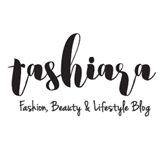Henna powder vs henna paste: which is better for hair and skin?

Henna, derived from the Lawsonia inermis plant, has been used for centuries as a natural dye for hair, skin, and nails. It is known for its conditioning properties, ability to cover greys, and use in creating intricate body art. When considering henna for personal use, you will likely encounter two common forms: henna powder and henna paste. Understanding the differences between these forms can help you choose the best option for your needs. In this article, we will explore the key differences between henna powder and henna paste, their benefits, and which is more suitable for your hair and skin.
What is Henna Powder?
Henna powder is the dried and finely ground form of henna leaves. This powder needs to be mixed with liquid, such as water, lemon juice, or tea, to create a smooth paste that can be applied to the hair or skin. Henna powder is the most traditional form and allows for more control over the mixing process, giving you the ability to customise the consistency, colour release, and drying time.
Benefits of Henna Powder:
- Customisable Formula: Since henna powder requires mixing, you can adjust the ingredients to suit your needs. For example, adding essential oils, herbal powders, or natural conditioners like yogurt can enhance its benefits.
- Longer Shelf Life: Henna powder, when stored in a cool, dry place, can last for up to a year without losing its effectiveness.
- More Natural: Pure organic henna powder is free from additives, giving you a more authentic and chemical-free product.
Drawbacks of Henna Powder:
- Requires Preparation: Henna powder requires more preparation time as it needs to be mixed into a paste and left to sit (usually for 4-6 hours) for the dye to release.
- Consistency Control: Mixing the paste properly can be tricky, as too much liquid can make it runny, while too little can make it thick and hard to apply.
What is Henna Paste?
Henna paste is the ready-to-use form of henna, where the powder has already been mixed with a liquid to form a paste. This form is popular for people looking for convenience and ease of use, especially for temporary body art. Pre-mixed henna paste often comes in tubes, cones, or jars.
Benefits of Henna Paste:
- Convenient and Ready-to-Use: With no mixing required, henna paste is ideal for those who want a quick and easy application.
- Perfect for Body Art: Henna paste, especially when packaged in cones, is ideal for intricate designs and can be used immediately.
- Smoother Consistency: Since henna paste is pre-mixed, it often has a consistent texture, making it easier to apply evenly without lumps.
Drawbacks of Henna Paste:
- Shorter Shelf Life: Pre-mixed henna paste has a much shorter shelf life than powder. Once mixed, it starts to lose its potency after a few days, even if refrigerated.
- Potential Additives: Many pre-mixed henna pastes contain preservatives, chemicals, or artificial dyes to extend shelf life or alter the colour. This can make the paste less natural and potentially harmful for sensitive skin.
Henna Powder vs Henna Paste: Key Comparisons
| Criteria | Henna Powder | Henna Paste |
|---|---|---|
| Shelf Life | Up to 1 year (if stored properly) | Few days (even if refrigerated) |
| Preparation | Requires mixing and dye-release time | Ready-to-use |
| Customization | Can be customized with oils and herbs | Limited customization |
| Ingredients | Often 100% pure, free from additives | May contain preservatives or chemicals |
| Convenience | Requires preparation, longer wait time | Instant application, great for body art |
| Effectiveness | Potent and effective with fresh preparation | May lose potency if stored too long |
| Ideal Use | Best for hair colouring and long treatments | Best for body art and quick applications |
Which is Better for Hair?
When it comes to hair dye and treatment, henna powder is generally the better option. Here’s why:
- Customisation: Henna powder allows you to mix the paste with other hair-benefiting ingredients, such as amla powder, hibiscus powder, or natural oils. This can enhance the colour and conditioning effects.
- Stronger Colour Release: Freshly mixed henna powder usually has a stronger dye release, which is crucial for effective hair colouring, especially when trying to cover greys.
- Longevity: Since henna powder is often 100% natural and free from preservatives, it offers a healthier alternative for long-term hair use.
Which is Better for Skin and Body Art?
For body art, such as mehndi or temporary tattoos, henna paste is the preferred choice:
- Ready-to-Use: Henna paste, especially in cone form, is designed for quick and intricate applications. It’s convenient for creating detailed designs without having to go through the mixing process.
- Smoother Application: Henna paste is pre-mixed to the right consistency for body art, ensuring smooth, clean lines that are difficult to achieve with powder unless you’re skilled at mixing.
Important Considerations
When choosing between henna powder and paste, there are a few factors to keep in mind:
- Ingredients: Always check the ingredients list, especially with pre-mixed henna paste, to ensure it doesn’t contain harmful chemicals like para-phenylenediamine (PPD), which can cause allergic reactions.
- Application Purpose: If you’re using henna for hair, powder gives you better control and customisation, while paste is more suitable for body art.
- Storage: Powder can be stored for months, while paste needs to be used quickly after it’s made or purchased.
Conclusion
In the battle between henna powder vs henna paste, the better option largely depends on your needs. For hair colouring and treatments, henna powder is more potent, customisable, and has a longer shelf life. It allows for the addition of other natural ingredients to enhance hair growth, shine, and strength. On the other hand, if you’re looking for convenience, especially for body art or quick applications, henna paste is the more practical option, though it may come with added preservatives.
Ultimately, if you want full control over your henna application, especially for hair, henna powder is the better choice. However, for temporary body art or for those who prefer convenience, henna paste is a solid alternative.











